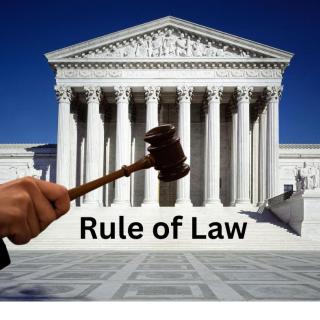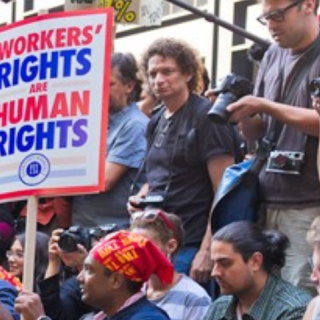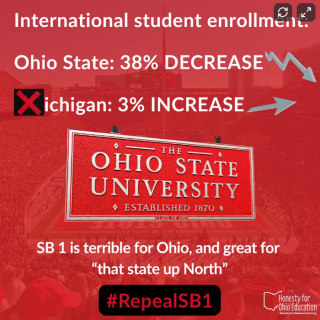Article II, Section 2 of the U.S. Constitution grants the power of the pardon to the president--probably the most absolute power granted in the document. Designed as a tool for justice and mercy, it has at times sparked intense public controversy. The recent pardon of President Biden’s son, Hunter, and the commutations granted to federal death row inmates has, once again, rekindled the need to reexamine this power.
The concept of the pardon was adopted from the British monarchy, where it was a royal prerogative rooted in the belief that sovereigns could temper justice with mercy. In Federalist No. 74, Alexander Hamilton defended the power by arguing that the pardon was necessary to provide “exceptions in favor of unfortunate guilt” and to serve the public good, especially during times of rebellion or unrest.
Hamilton’s fellow authors of the Federalist Papers, James Madison and John Jay, however, expressed concerns about granting such sweeping power to one individual in a structure otherwise designed with robust checks and balances. Madison feared the potential for misuse, while Jay viewed it as a calculated risk, hoping that the executive’s accountability to the public would temper any abuse. Ultimately, the power was included, trusting that the President’s integrity and the weight of public scrutiny would prevent abuse.
While many pardons have been seen as acts of grace, others have sparked national debate and damaged public trust. Gerald Ford’s pardon of Richard Nixon after the Watergate scandal is one of the most infamous examples. Ford justified the decision as a means of healing the nation, but critics viewed it as an act of political expediency and a circumvention of justice.
Similarly, Bill Clinton’s last-minute pardon of Marc Rich, a fugitive financier accused of tax evasion and illegal oil deals, drew widespread condemnation. Critics alleged that the pardon was influenced by political donations and personal connections, questioning the ethical use of this executive power.
More recently, President Joe Biden’s decision to pardon his son Hunter, amid two felony convictions, has reignited these concerns. While some supporters argue that his actions are rooted in compassion for his family, others see the pardon as a blatant abuse of power shielding a close relative from accountability; a further reminder that the pardon power, while intended for justice, can easily be wielded for personal or political gain.
The Constitution is structured with checks and balances to prevent any one branch of government from becoming too powerful. Yet the presidential pardon power operates as an outlier in an otherwise balanced system. Unlike legislation, executive orders, or even war powers, there is no legislative or judicial recourse to challenge a pardon, no matter how egregious.
Why did the Founders allow for such an unchecked power? At the time of the Constitution’s drafting, the executive branch was envisioned as a restrained and accountable office. The notion of a demagogue or monarch-like figure exploiting the pardon power may have seemed implausible to the Founders. Additionally, the pardon power was seen as an emergency tool to restore peace and stability, particularly in the wake of rebellions or widespread unrest, which had been a real danger prior to the drafting of the Constitution. Now the absence of any counterweight to this power stands out as a glaring oversight.
To address this, there could be a Constitutional amendment that would allow Congress to override a presidential pardon with a two-thirds vote in both the House and Senate. This mechanism would mirror the current process for overriding a presidential veto. Such a safeguard would not nullify the pardon power but would provide a necessary check. Just as veto overrides are rare due to the high threshold required, the overturning of a pardon would only occur in the most extreme cases. For example, pardons granted to shield personal allies, family members, or individuals involved in significant corruption scandals could face Congressional review.
Amending the Constitution is a challenging process by design. An amendment requires a two-thirds vote in both houses of Congress and ratification by three-fourths of state legislatures. The difficulty of this process ensures that only broadly supported and deeply necessary changes are made to the Constitution.
While the idea of limiting the pardon power would likely face partisan resistance, the growing frequency of controversial pardons could garner bipartisan support. Public outrage over perceived abuses of power, such as the Hunter Biden pardon is clear evidence that reform is needed. Moreover, the principle of accountability—a value that transcends party lines—could unite lawmakers in support of this proposal. Additionally, the high bar set by the proposal shields the action from just a mere majority.
The presidential pardon power was conceived as a tool of mercy and justice, but its unchecked nature has led to instances of abuse that undermine public trust in government. In a system founded on checks and balances, the pardon power stands as an exception, leaving the nation vulnerable to the whims of a single individual.
By introducing a mechanism for Congressional oversight, such as a two-thirds override vote, we can restore accountability while preserving the pardon’s original intent. These instances are rare and the American people deserve a government that is both compassionate and accountable. The time has come to reexamine the presidential pardon and ensure it aligns with the principles of our constitutional republic.



